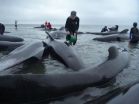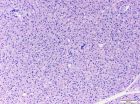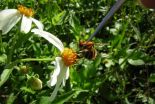(Press-News.org) ANN ARBOR, Mich. – For those with irritable bowel syndrome who wonder if stress aggravates their intestinal disorder, a new University of Michigan Health System study shows it's not all in their head.
Researchers revealed that while stress does not cause IBS, it does alter brain-gut interactions and induces the intestinal inflammation that often leads to severe or chronic belly pain, loss of appetite and diarrhea.
Stress has a way of suppressing an important component called an inflammasome which is needed to maintain normal gut microbiota, but probiotics reversed the effect in animal models, according to findings published online ahead of print in Gastroenterology.
"The effect of stress could be protected with probiotics which reversed the inhibition of the inflammasome," says senior study author and gastroenterologist John Y. Kao, M.D., associate professor of internal medicine at the University of Michigan. "This study reveals an important mechanism for explaining why treating IBS patients with probiotics makes sense."
Probiotics are live bacteria that help grow the gut-dwelling "good" bacteria that keep pathogens in check, aid digestion and nutrient absorption and contribute to immune function.
U-M researchers including Chung Owyang, M.D., chief of the U-M Division of Gastroenterology, Gary Huffnagle, Ph.D., professor of pulmonary and critical care, and infectious disease expert Vincent Young, M.D., Ph.D., were able to identify the way stress significantly altered the composition of gut bacteria and the role of probiotics.
Maintaining healthy microbiota requires action by nucleotide-binding oligomerization domain protein-like receptors, pyrin-domain containing (NLRP)-6 inflammasomes. But when stressed, mice produced corticotropin-releasing hormone (CRH) that prevented inflammasomes from doing their job.
Inhibiting inflammosomes alters the composition of the gut, leading to intestinal inflammation. In the study, pretreatment with probiotic therapy reduced inflammation in mice with stress-induced small bowel inflammation.
"Additional clinical study is required to determine the optimal probiotic therapy," says Kao. "Patients can start living healthier lifestyles to improve their gut microbiota such as adding more fruits and vegetables to their diet, and looking for ways to keep stress in check."
###
Reference: "Stress-induced corticotropin-releasing hormone-mediated NLRPG inflammasome inhibition and transmissible enteritis in mice, Gastroenterology, doi: 10.1053
Funding: National Institute of Diabetes and Digestive and Kidney Diseases and from the National Institute of Allergy and Infectious Diseases.
Study: Probiotics reduce stress-induced intestinal flare-ups
University of Michigan study helps explain benefits of probiotics for patients with stress-associated gastrointestinal disorders
2013-03-14
ELSE PRESS RELEASES FROM THIS DATE:
Oh mother, where art thou?
2013-03-14
Biologists since Aristotle have puzzled over the reasons for mass strandings of whales and dolphins, in which groups of up to several hundred individuals drive themselves up onto a beach, apparently intentionally. Recent genetic research has shed some light on whether family relationships play a role in these enigmatic and often fatal beachings of otherwise healthy whales.
One hypothesis regarding the reason for strandings is that "care-giving behavior," mediated largely by family relationships, plays a critical role. In this scenario, the stranding of one or a few whales, ...
Transplanted brain cells in monkeys light up personalized therapy
2013-03-14
MADISON — For the first time, scientists have transplanted neural cells derived from a monkey's skin into its brain and watched the cells develop into several types of mature brain cells, according to the authors of a new study in Cell Reports. After six months, the cells looked entirely normal, and were only detectable because they initially were tagged with a fluorescent protein.
Because the cells were derived from adult cells in each monkey's skin, the experiment is a proof-of-principle for the concept of personalized medicine, where treatments are designed for each ...
Study questions the role of kinship in mass strandings of pilot whales
2013-03-14
NEWPORT, Ore. – Pilot whales that have died in mass strandings in New Zealand and Australia included many unrelated individuals at each event, a new study concludes, challenging a popular assumption that whales follow each other onto the beach and to almost certain death because of familial ties.
Using genetic samples from individuals in large strandings, scientists have determined that both related and unrelated individuals were scattered along the beaches – and that the bodies of mothers and young calves were often separated by large distances.
Results of the study ...
Knowing how brown fat cells develop may help fight obesity
2013-03-14
PHILADELPHIA - Brown fat is a hot topic, pardon the pun. Brown fats cells, as opposed to white fat cells, make heat for the body, and are thought to have evolved to help mammals cope with the cold. But, their role in generating warmth might also be applied to coping with obesity and diabetes.
The lab of Patrick Seale, PhD, at the Perelman School of Medicine, University of Pennsylvania, studies what proteins guide the development, differentiation, and function of fat cells. Seale and postdoctoral fellow Sona Rajakumari, PhD, along with Jun Wu from the Dana-Farber Cancer ...
Social bees mark dangerous flowers with chemical signals
2013-03-14
Scientists already knew that some social bee species warn their conspecifics when detecting the presence of a predator near their hive, which in turn causes an attack response to the possible predator. Researchers at the University of Tours (France) in collaboration with the Experimental Station of Arid Zones of Almeria (Spain) have now demonstrated that they also use chemical signals to mark those flowers where they have previously been attacked.
Researchers at the University of Tours (France) and the Experimental Station of Arid Zones of Almeria (EEZA-CSIC) conducted ...
23andMe identifies multiple genetic factors impacting development of nearsightedness
2013-03-14
Mountain View, Calif. – March 14, 2013 – In the largest ever genome-wide association study on myopia, 23andMe, the leading personal genetics company, identified 20 new genetic associations for myopia, or nearsightedness. The company also replicated two known associations in the study, which was specific to individuals of European ancestry. The study included an analysis of genetic data and survey responses from more than 50,000 23andMe customers and demonstrates that the genetic basis of myopia is complex and affected by multiple genes.
Myopia is the most common eye ...
New early warning system for the brain development of babies published in video journal
2013-03-14
A new research technique, pioneered by Dr. Maria Angela Franceschini, will be published in JoVE (Journal of Visualized Experiments) on March 14th. Researchers at Massachusetts General Hospital and Harvard Medical School have developed a non-invasive optical measurement system to monitor neonatal brain activity via cerebral metabolism and blood flow.
Of the nearly four million children born in the United States each year, 12% are born preterm, 8% are born with low birth weight, and 1-2% of infants are at risk for death associated with respiratory distress. The result ...
CITES makes historic decision to protect sharks and rays
2013-03-14
Bangkok, 14 March 2013. CITES plenary today accepted Committee recommendations to list five species of highly traded sharks under the CITES Appendices, along with those for the listing of both manta rays and one species of sawfish. Japan, backed by Gambia and India, unsuccessfully challenged the Committee decision to list the oceanic whitetip shark, while Grenada and China failed in an attempt to reopen debate on listing three hammerhead species. Colombia, Senegal, Mexico and others took the floor to defend Committee decisions to list sharks.
"We are thrilled with this ...
Statement by WCS president and CEO on historic CITES ruling
2013-03-14
BANGKOK -- March 14, 2013 -- The following statement was issued today by WCS President and CEO Cristian Samper:
The Wildlife Conservation Society (WCS) today celebrates the decision by an historic, broad group of nations from around the world to list five new sharks, freshwater sawfish, and two manta ray species for protection by the Convention on International Trade in Endangered Species of Wild Fauna and Flora (CITES). This vote is a first, critical step in working to ensure that international trade does not threaten the survival of commercially valuable shark and ray ...
Discards ban could impact seabird populations
2013-03-14
The European Parliament recently voted to scrap the controversial discards policy, which has seen fishermen throwing thousands of edible fish and fish waste back into the sea because they have exceeded their quotas.
Scientists at Plymouth University believe this could have a negative impact on some seabirds, which have become used to following the fishing vessels and are increasingly reliant on their discards.
But they say others could return to using foraging as their sole source of food, as long as there are sufficient numbers of fish to meet their needs.
Dr Stephen ...
LAST 30 PRESS RELEASES:
Why conversation is more like a dance than an exchange of words
With Evo 2, AI can model and design the genetic code for all domains of life
Discovery of why only some early tumors survive could help catch and treat cancer at very earliest stages
Study reveals how gut bacteria and diet can reprogram fat to burn more energy
Mayo Clinic researchers link Parkinson's-related protein to faster Alzheimer's progression in women
Trends in metabolic and bariatric surgery use during the GLP-1 receptor agonist era
Loneliness, anxiety symptoms, depressive symptoms, and suicidal ideation in the all of us dataset
A decision-support system to personalize antidepressant treatment in major depressive disorder
Thunderstorms don’t just appear out of thin air - scientists' key finding to improve forecasting
Automated CT scan analysis could fast-track clinical assessments
New UNC Charlotte study reveals how just three molecules can launch gene-silencing condensates, organizing the epigenome and controlling stem cell differentiation
Oldest known bony fish fossils uncover early vertebrate evolution
High‑performance all‑solid‑state magnesium-air rechargeable battery enabled by metal-free nanoporous graphene
Improving data science education using interest‑matched examples and hands‑on data exercises
Sparkling water helps keep minds sharp during long esports sessions
Drone LiDAR surveys of abandoned roads reveal long-term debris supply driving debris-flow hazards
UGA Bioinformatics doctoral student selected for AIBS and SURA public policy fellowship
Gut microbiome connected with heart disease precursor
Nitrous oxide, a product of fertilizer use, may harm some soil bacteria
FAU lands $4.5M US Air Force T-1A Jayhawk flight simulator
SimTac: A physics-based simulator for vision-based tactile sensing with biomorphic structures
Preparing students to deal with ‘reality shock’ in the workplace
Researchers develop beating, 3D-printed heart model for surgical practice
Black soldier fly larvae show promise for safe organic waste removal
People with COPD commonly misuse medications
How periodontitis-linked bacteria accelerate osteoporosis-like bone loss through the gut
Understanding how cells take up and use isolated ‘powerhouses’ to restore energy function
Ten-point plan to deliver climate education unveiled by experts
Team led by UC San Diego researchers selected for prestigious global cancer prize
Study: Reported crop yield gains from breeding may be overstated
[Press-News.org] Study: Probiotics reduce stress-induced intestinal flare-upsUniversity of Michigan study helps explain benefits of probiotics for patients with stress-associated gastrointestinal disorders



